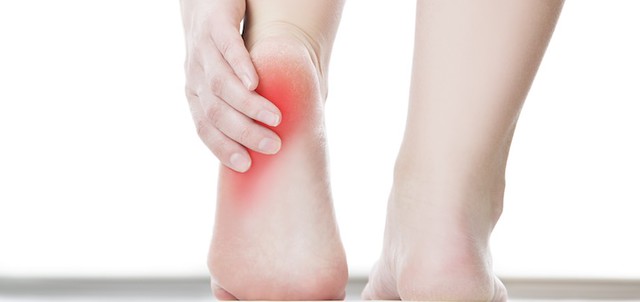Heel Pain
Your heel absorbs the impact of your body weight when walking or exercising and heel complaints can be very disabling. It is important to diagnose your complaint and its underlying cause to effectively treat you.
There are many conditions that could cause heel pain, an experienced podiatrist can help diagnose your complaint and give an appropriate treatment plan.
Rachel Miller is a highly experienced podiatrist who treats many patients for heel pain. Please see below if you want more detailed explanation of some common heel pain conditions, their symptoms, causes and treatments.
Call 020 8348 5553 to make an appointment
Heel Pain
The following is a list of some of the conditions that might cause heel pain; see their individual pages for more detailed information of the disorders.
Links to common heel pain conditions include:
Plantar fasciitis
Achilles tendinopathy
Haglund’s deformity
Sever’s disease
Heel pad syndrome
Stress fractures
Tarsal tunnel syndrome
Symptoms of heel pain
Heel pain symptoms can be different depending on the cause of the disorder. Pain can be in one or both heels and pain can get progressively worse over time.
If your pain is severe, you have a fever, dizziness, faintness, cannot bend your foot, contact a doctor or an experienced podiatrist immediately.
Symptoms can include:
- pain or aching behind or beneath your heel or within your heel bone
- pain worse after inactivity, can improve with some exercise to get worse again after prolonged use
- pain worse walking/running
- swelling, stiffness or redness around the heel
- snapping or popping sound after injury which can indicate a heel fracture or ruptured Achilles tendon
- severe heel pain after an injury
- pain in your heel when you’re not walking or standing
- prolonged heel pain
- numbness or tingling
Causes of heel pain
Heel complaints are common, there are many different conditions and anyone of any age can suffer from heel pain. See the above list for more detailed information of some common conditions of heel pain.
Risk factors can include:
- age, the over 40’s
- your weight
- your footwear
- your foot shape, flat feet or high arches
- people who stand for long periods, especially on hard surfaces
- athletes – In some cases heel pain can be a result of small repetitive injuries such as from exercising or engaging in a physical activity intensely. Repetitive actions can mean that tissue breaks down faster than it can rebuild
Inflammatory joint pain from such conditions as rheumatoid arthritis, reactive arthritis, gout or lower back problems can also result in heel pain.
Treatment of heel pain
Treatment will depend on the cause of your condition. If you do suffer from heel pain and it persists, you should see an experienced podiatrist who can diagnose your condition and recommend a treatment plan.
Immediate treatment can include:
- PRICE – Protection; Rest; Ice; Compression; Elevation.
Other treatments can include:
- footwear advice
- heel pads
- self-help advice
- exercise and stretching regimes
- orthotic insole
You might benefit from specialist treatments such as a biomechanical assessment. A bespoke orthotic insole may be prescribed as part of your treatment plan which can support and cushion the foot and may reduce pain on impact on walking and running.
Contact the Centre for an appointment on 020 8348 5553
Rachel Miller is a highly experienced podiatrist specialising in biomechanics who sees many patients for heel pain. Her clinic, Highgate Podiatry, is in Highgate Village, 14 Pond Square, N6 6BA, London. Clinics are held every Sunday, Wednesday and Thursday. Please contact the clinic for an appointment on 020 8348 5553. For the clinic’s address, map and directions see the Contact page and for information about orthotic insoles and biomechanics see the Biomechanics page.
Links to Services:
Links to Conditions Treated Include:
- Achilles tendinopathy
- Ankle fractures
- Ankle injuries
- Arthritis
- Back pain
- Bunions
- Corns/Calluses
- Diabetic care
- Flat feet
- Fungal toenail/athlete’s foot
- Haglund’s deformity
- Hammer toe and mallet toe
- Heel pain
- High arches
- Hypermobility
- Ingrown toenail
- In-toeing, toe walking, curly toes
- Knee injuries
- Metatarsalgia
- Morton’s neuroma
- Osgood-Schlatter disease
- Overuse injuries
- Patella tendinopathy
- Patellofemoral pain syndrome
- Plantar fasciitis
- Sever’s disease
- Sprained ankles
- Stress fractures
- Tarsal tunnel syndrome
- Toenails






